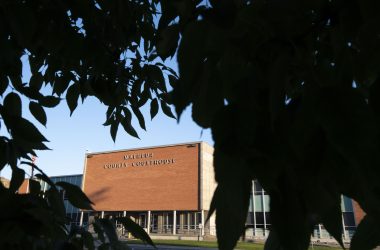By Les Zaitz
The Enterprise
The task won’t be hard – just listening.
But the results could greatly affect what you know about Malheur County.
Starting this week, I’m gathering folks, about a dozen at a time, for about an hour of research. The first bunch met over coffee in Ontario, and other sessions will follow there, in Vale, and in Nyssa.
What I’m after is an understanding of how the people of Malheur County keep themselves informed. That means where do you get your news, what news aren’t you getting, and what about your community do you most care about.
This is important because in a democracy, the people are expected to govern themselves. We’re not doing a very good job of it right now. The country seems split a half-dozen different ways politically, spiritually and culturally. We spend more time attacking public officials than giving them guidance. We leave city councilors and school board members to debate in rooms largely void of citizens, then go after them when we don’t like their decisions.
The media gets some of the blame. Rightly so. The press focuses too much on personalities, because some editors think people are more interested in Ivanka Trump’s stilettos than her health care stance. The press gives list after list because people click on them: The 10 Most Annoying Habits of Priests or some such silliness. This passes for news, and it isn’t.
Perhaps I’m too much an optimist, but I have more faith in the American people than that. My professional instincts, and recent experience in Malheur County, tell me you want good, solid information you can trust. You want to know about your community. You want to know about people in power and what they are doing with that power. You want to know how to help. And you want your opinion to be considered and valued, not necessarily adopted.
One event that fostered my instincts was the Town Hall that the Malheur Enterprise put on last fall dealing with Treasure Valley Community College. People responded to an opportunity to get information. There was standing room only, thoughtful comments, and a real sense of a community pulling together for one of its prized institutions.
In these coffee cup conversations, I’ll listen to people explain their daily news diet. It’s easy to assume where people turn for information, but I’m interested as much in why they turn where they turn. I’m interested in how they decide what sources to trust and which to ignore.
And I’m interested especially in what kind of information triggers people to get involved, whether it’s at their kid’s school, on a city task force, or the board of a struggling charity. Conversely, what keeps them away? The “I’m busy” answer is too ready and too pat. People always make time for those elements of life that matter.
These conversations in the coming weeks are by invitation, individuals selected from those of you who sent us a note expressing an interest. I said I’d pay $10 to those who do show up. That’s not because I don’t have friends and need to pay people to sit down for coffee with me. Rather, it’s a measure of how serious I take these sessions, serious enough to put money on the table.
After the conversations, I’ll share with you and the community. Perhaps we won’t learn anything, but perhaps, just perhaps, we’ll learn together of ways to reshape what information people get and how they get it. That’s worth the effort to produce a stronger community, an enduring “can do” spirit, and a path to heal the divides that seem exaggerated and sustained by some wrongly-focused press.
Les Zaitz is editor and publisher of the Enterprise. Interested in joining the conversation? Email [email protected].



